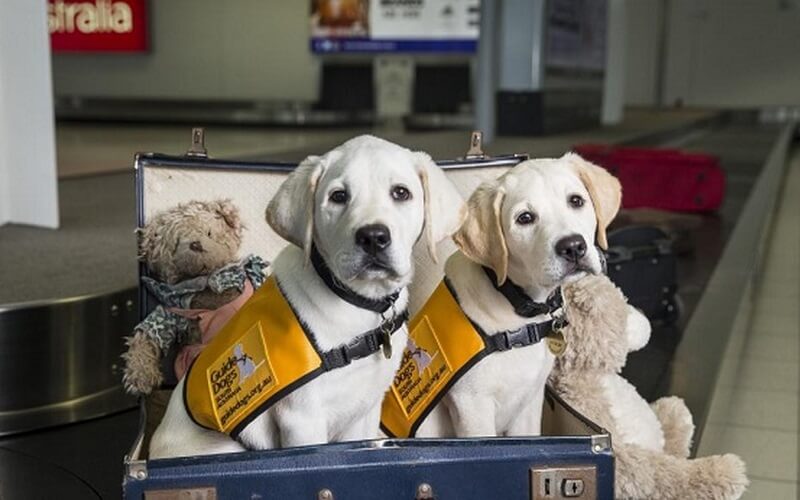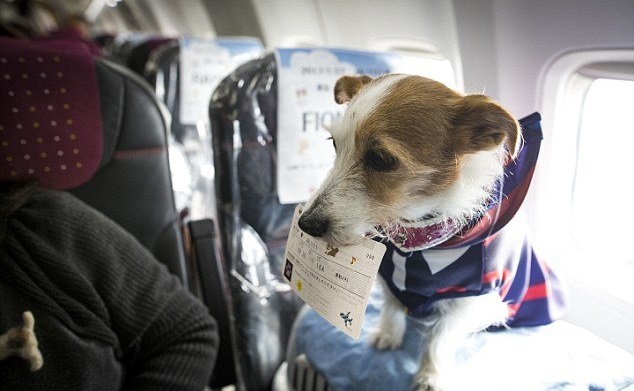Do Pets Need to Be Quarantined When Entering a Country?
With international travel becoming more common, many pet owners want to bring their beloved dogs and cats along when moving, working, studying, or traveling abroad. However, one of the most frequent concerns is: “Will my pet be quarantined upon arrival?”
The answer is not universal—it depends on the destination country, its rabies status, and the health regulations in place. In this article, we’ll explore why quarantine exists, which countries require it, which countries don’t, what documents are needed, and how you can prepare your pet to avoid unnecessary stress.
Do Pets Need to Be Quarantined When Entering a Country?
1. Why Do Countries Impose Pet Quarantine?
Quarantine for pets is not about punishment—it’s about public health and safety. The main purposes are:
-
Preventing rabies transmission: Rabies is a fatal viral disease. Many countries that are rabies-free want to keep it that way.
-
Protecting native animals: Quarantine ensures imported pets don’t introduce diseases or parasites to local wildlife.
-
Ensuring compliance with veterinary regulations: Authorities verify that pets are vaccinated, microchipped, and healthy before entry.
👉 In short, pet quarantine is a disease prevention strategy that protects both humans and animals.
2. Countries With Strict Quarantine Rules

Some countries and regions are extremely strict because they have successfully eliminated rabies and other serious animal diseases.
a. Australia
-
Dogs and cats entering Australia must undergo a minimum of 10 days quarantine at an official facility.
-
Pets must also pass pre-export blood tests and meet vaccination requirements.
b. New Zealand
-
Requires a minimum 10-day quarantine, even if vaccination and blood test requirements are met.
-
Pets must undergo extensive pre-arrival testing for rabies antibodies.
c. Singapore
-
The quarantine period ranges from 10 to 30 days, depending on the country of origin and risk level.
d. Japan
-
Pets without rabies antibody test results done at least 180 days prior to travel may be quarantined for up to 180 days.
e. Other regions
-
Hawaii (USA): requires quarantine if rabies vaccination and testing requirements are incomplete.
-
Iceland: enforces a 14+ day quarantine for all pets entering the country.
👉 These countries follow a “Zero Rabies Tolerance” policy, meaning no compromise on potential risks.
3. Countries That Do Not Require Quarantine
Many countries allow pets to enter without quarantine, provided the correct documents are presented.
Examples include:
-
United States (mainland): No quarantine if rabies vaccination certificates are valid.
-
Canada: Accepts vaccinated pets with proper documentation.
-
European Union (EU): Pets traveling within the EU only need an EU pet passport. Pets from outside the EU need proof of rabies vaccination and, in some cases, a rabies antibody titer test.
-
Southeast Asia (Thailand, Malaysia, Vietnam, etc.): Generally no quarantine required, but vaccination proof is mandatory.
👉 In these countries, complete paperwork is the key to skipping quarantine.
4. Do Pets Need to Be Quarantined When Entering Vietnam?
a. General rules
When bringing a dog or cat into Vietnam, pet owners must provide:
-
A veterinary health certificate issued by the exporting country.
-
A valid rabies vaccination certificate (administered within the past 12 months).
-
Rabies antibody test results (in some cases, depending on country of origin).
b. Quarantine requirements
-
If documents are complete and valid: pets are not quarantined when entering Vietnam.
-
If documents are missing or incomplete: authorities may order temporary quarantine or additional veterinary checks.
👉 In practice, most pets entering Vietnam with proper paperwork do not face quarantine.
5. What Happens During Pet Quarantine?

If a country requires quarantine, here’s what typically happens:
-
Arrival check: Customs officials review documents and microchip information.
-
Transport to quarantine facility: Pets are taken to a government-approved center.
-
Health monitoring: Pets are checked for signs of disease, parasites, or unusual behavior.
-
Daily care: Pets are fed, exercised, and monitored.
-
Release: After the required days, if the pet remains healthy, it is released to the owner.
Quarantine periods vary between 7 to 30 days, though some cases may last longer if issues arise.
6. How to Avoid Pet Quarantine When Traveling
Most pet owners would prefer to skip quarantine, and in many countries, it’s possible if you prepare early.
Here’s what you need to do:
-
Microchip your pet: Many countries require ISO-standard microchips.
-
Vaccinate against rabies: Ensure vaccines are up to date—at least 30 days old, but less than 12 months.
-
Rabies antibody test (FAVN test): Required by strict countries like Japan, Singapore, Australia, New Zealand. Must be done 3–6 months before travel.
-
Get an official health certificate: Issued by a government veterinarian before departure.
-
Research destination rules: Regulations vary by country and sometimes even by airline.
-
Plan ahead: Some processes (like antibody testing) require months of preparation.
👉 Early planning can save your pet from unnecessary quarantine.
7. Key Things to Consider Before Traveling With Pets
-
Destination choice matters: Moving to rabies-free countries usually involves stricter rules.
-
Time and cost: Rabies tests, health certificates, and quarantine fees can be expensive.
-
Pet’s well-being: Long flights and quarantine facilities may cause stress. Consider whether your pet can handle it.
-
Airline requirements: Airlines have separate rules for crates, cabin vs. cargo transport, and pet size.
-
Consult professionals: Work with a licensed pet relocation service if you’re unsure.
8. Conclusion
So, do pets need to be quarantined when entering a country? The answer is: it depends on where you are traveling.
-
Strict quarantine countries (Australia, New Zealand, Japan, Singapore, Iceland, Hawaii): pets must spend time in official facilities.
-
Most other countries (USA, Canada, EU, Vietnam, Thailand, etc.): pets can enter without quarantine, provided all vaccination and health documents are correct.
The golden rule is preparation. If you plan ahead—vaccinate your pet, complete antibody tests if needed, and bring the correct paperwork—your furry friend can travel smoothly without unnecessary quarantine.
👉 Quarantine may sound intimidating, but with the right documents, most pets won’t face it at all. Protect your pet, follow the rules, and enjoy traveling together.
Read more:
- Regulations for Transporting Pets by Air from China to Vietnam
- Regulations for Transporting Pets by Air to France

